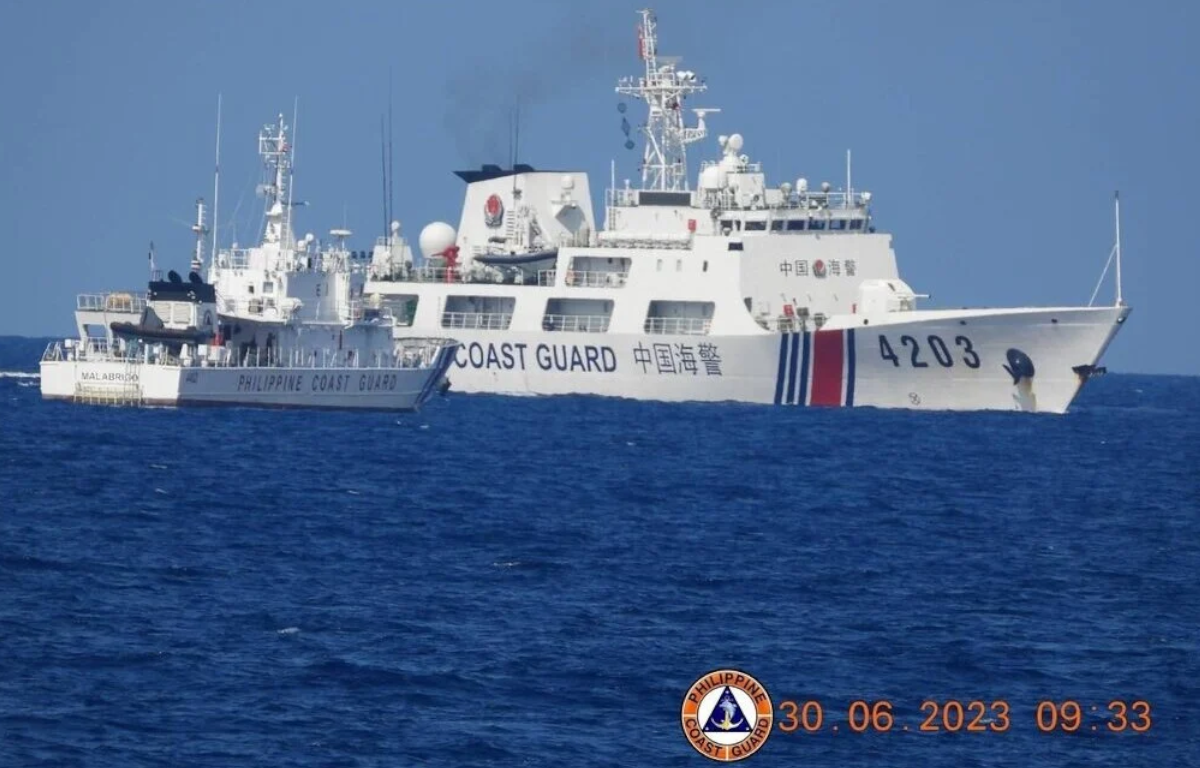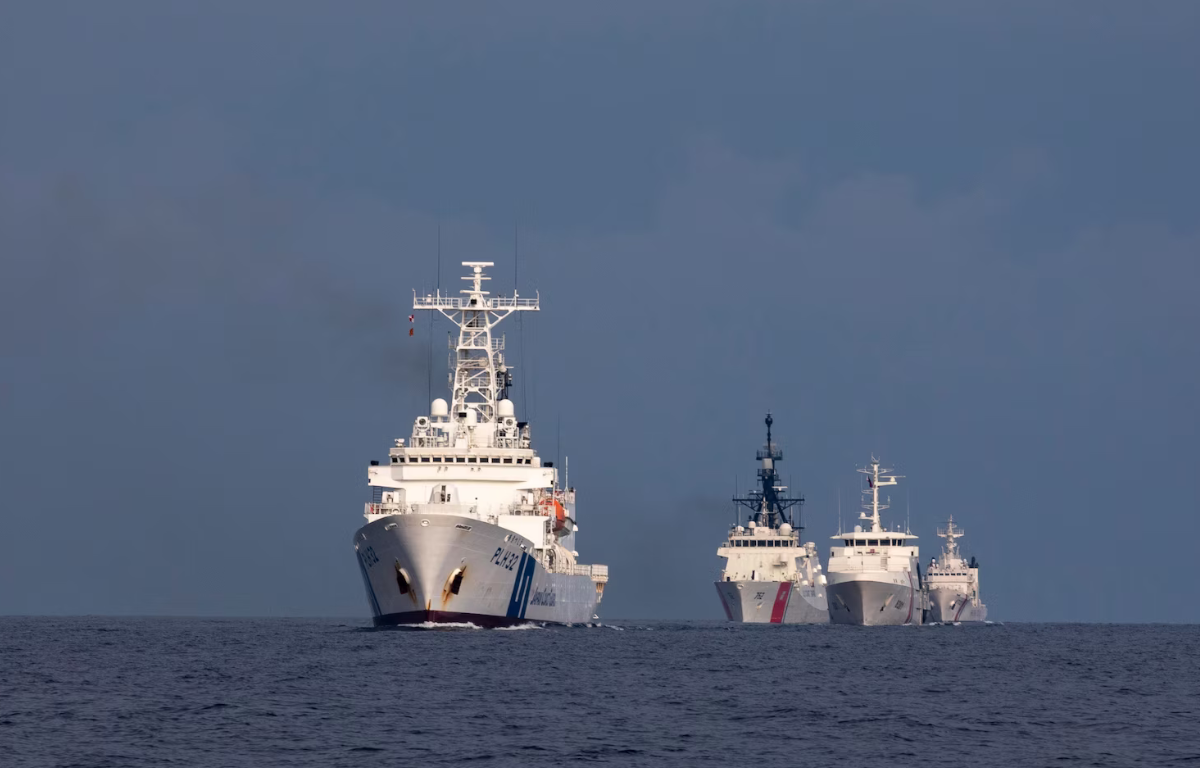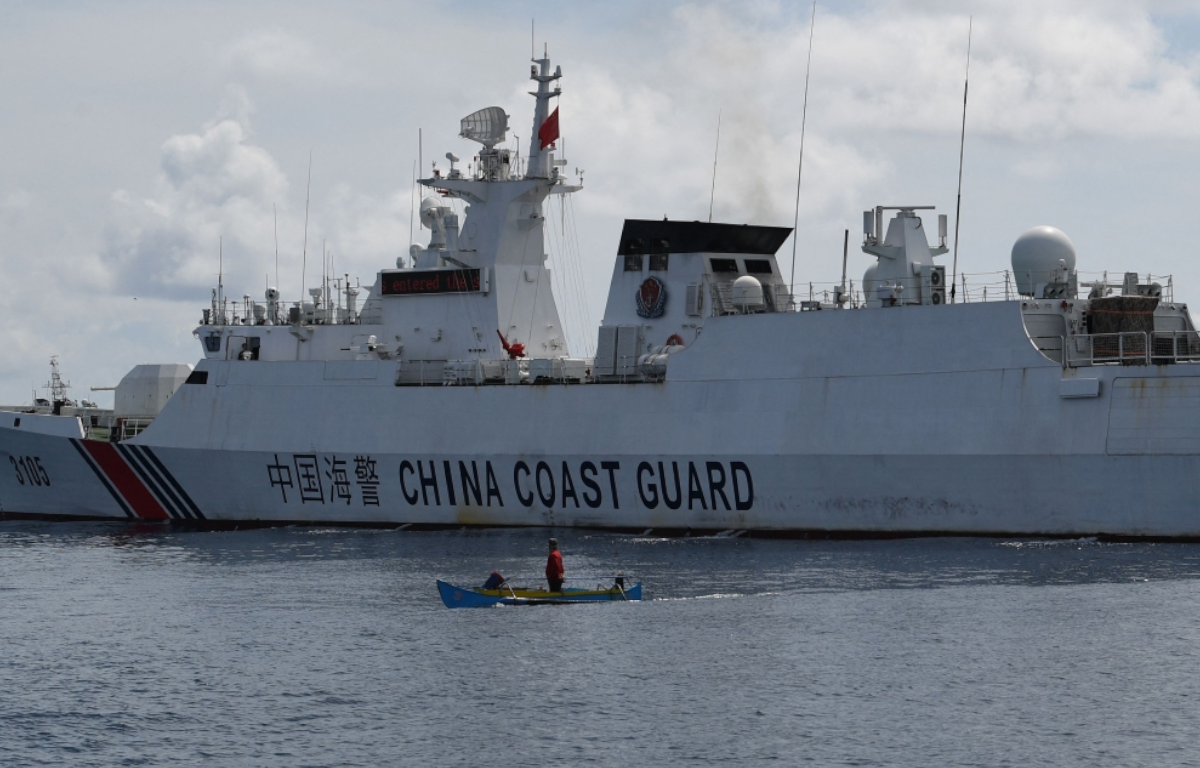
The floating barrier in question, which measures approximately 1.3 kilometers in length, was first reported by Filipino fishermen who encountered it while fishing near Recto Bank, an area the Philippines considers part of its Exclusive Economic Zone (EEZ). Recto Bank is known for its rich fishing grounds and potential oil and natural gas reserves.
The barrier appears to be a large, semi-permanent structure used for aquaculture purposes. Such barriers are typically used to enclose and cultivate fish or other marine species. While the cultivation of marine life is a legitimate activity, the location of this structure within the Philippines’ EEZ raises concerns regarding its legality and potential environmental impact.
The Philippines has taken a two-fold approach to address the issue. Firstly, it has filed a diplomatic protest with the Chinese government through its embassy in Manila. This formal protest seeks clarification from China regarding the purpose and authorization for the construction of the barrier. It also emphasizes the Philippines’ sovereignty and rights over its EEZ, as affirmed by international law, including the United Nations Convention on the Law of the Sea (UNCLOS).
Secondly, the Philippine government has called for a meeting with the other claimant countries in the South China Sea, including China, to discuss the management and preservation of the region’s marine resources. This diplomatic initiative aims to foster dialogue and cooperation among the involved parties and reduce tensions in the disputed waters.
The South China Sea has been a long-standing point of contention among several nations, including China, the Philippines, Vietnam, Malaysia, Brunei, and Taiwan. These disputes primarily revolve around territorial claims, fishing rights, and the exploitation of natural resources in the region.
China’s extensive territorial claims, known as the “nine-dash line,” have been a source of concern for neighboring countries and have led to disputes over sovereignty and jurisdiction. The Philippines, in particular, has pursued legal avenues to assert its rights in the South China Sea. In 2016, the Permanent Court of Arbitration in The Hague ruled in favor of the Philippines, stating that China’s claims had no legal basis. However, China has refused to accept the ruling.
The Philippines’ decision to file a diplomatic protest against China over the floating barrier carries broader implications for regional stability and the application of international law. It signals the Philippines’ determination to protect its maritime rights and resources while pursuing peaceful means to address disputes.
Furthermore, it underscores the importance of upholding UNCLOS, which serves as the foundation for resolving maritime disputes and promoting cooperation among nations. The Philippines’ diplomatic protest aligns with the principles of international law and seeks to maintain a rules-based order in the South China Sea.
The international community will closely watch how China responds to this diplomatic protest and whether it chooses to engage in dialogue and cooperation to address the issue. The hope is that such diplomatic efforts can contribute to stability and the sustainable management of marine resources in one of the world’s most contentious maritime regions.










Share this: